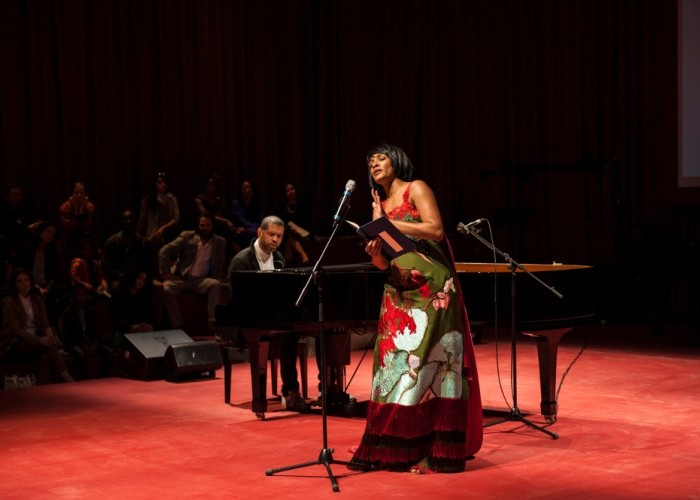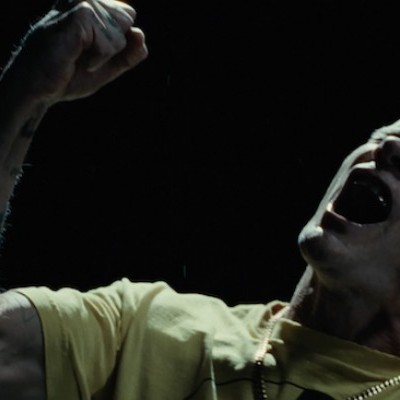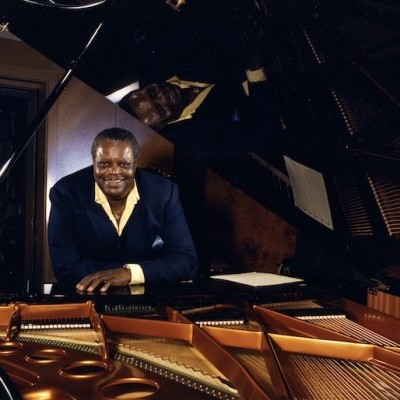Dec 9, 2025 12:28 PM
In Memoriam: Gordon Goodwin, 1954–2025
Gordon Goodwin, an award-winning saxophonist, pianist, bandleader, composer and arranger, died Dec. 8 in Los Angeles.…

Jason Moran and Alicia Hall Moran perform at the 2015 Venice Biennale in Italy.
(Photo: Venice Biennial)In tandem, the Morans have expanded notions of how much commonality exists between the jazz and operatic traditions, and avant-garde creatives working across the spectrum of disciplines—energetically demonstrating how boundaries between those forms can be transformed, transgressed and on occasion even torched. Upcoming in 2019 is a Carnegie Hall-commissioned world premiere focusing on Black migration in the United States. Music inspired by terror will be at its core.
In conversation, the two musicians are refreshingly honest about everything: their points of agreement, disagreement and cognitive dissonance; debts owed to forebearers and teachers; and the need to highlight the oft-overlooked contributions of Black women to the modern jazz ecosystem.
You have both arrived at this place of curation in your performance practice—frequently using collaborations to extend your ethos. It suggests you’ve both come to a place where jazz as we know it is not enough and singing opera as we know it is not enough. It’s analogous to what people have been doing in avant-garde theateR and visual arts for decades. I’d like to hear you both talk about these multidisciplinary frames.
Jason Moran: Only when Alicia showed up did I realize there was a “frame” around jazz—and that it wasn’t always a Black frame. So the question became, “What was framing the music?” Was it the times? Was it the musicians? All of that stuff started as we met each other. That kind of thinking has been a big part of the shift for us having a record label. But it’s about ownership. I had 18 great, glorious years with Blue Note, but now it’s about the next chapter and creating something that we own.
Let’s also talk about the fact that it is y’all’s label and not your label, Jason.
JM: Yep. YES [Records] is us. The first record we put out was Alicia’s record Heavy Blue. But the [collaborators] who have brought us in to work on their projects over the past 10 or 15 years—like Bill T. Jones and Joan Jonas—they roll very differently than musicians. There’s a longer process of gestation.
In jazz, you might see the music for the first time five minutes after you get to the studio, and then you’re recording five minutes after that. But Bill T. Jones is not just taking his company of 10 people on the road around the world with a set designer and lighting director after five minutes. Joan Jonas is not just coming up with a script and moving all these videos and props around after just five minutes. That was a huge wakeup call, that somebody like Adrian Piper has a critical eye on every piece of language she uses and puts on the wall. I’m hard pressed to find people in my crew who are doing that.
Interrogating the process …
JM: When I work with students at New England Conservatory, it is about that interrogation. It’s about me going, “Wait a minute, you don’t just stumble up into this song and act like it’s yours. It ain’t that quick and it ain’t that easy.” The people you love have made those songs their own through a very different process of interrogation and have a whole language built around that and a whole movement built around that—people like Cecil Taylor.
Cecil Taylor and Sun Ra put a whole lot of thought into the presentation of the music and how that presentation was a whole commentary on the frame around jazz. It seems like you are part of a reanimation of the notion that the music can once again present us with a total performance in a more theatrical or operatic sense.
JM: I’m keenly aware of what’s not happening now in my performance canon versus an operatic one. And I knew collaborators would help me get past some of my own hang-ups about the role of performance in my work.

Goodwin was one of the most acclaimed, successful and influential jazz musicians of his generation.
Dec 9, 2025 12:28 PM
Gordon Goodwin, an award-winning saxophonist, pianist, bandleader, composer and arranger, died Dec. 8 in Los Angeles.…

Flea has returned to his first instrument — the trumpet — and assembled a dream band of jazz musicians to record a new album.
Dec 2, 2025 2:01 AM
After a nearly five-decade career as one of his generation’s defining rock bassists, Flea has returned to his first…

Belá Fleck during an interview with Fredrika Whitfield on CNN.
Jan 13, 2026 2:09 PM
The fallout from the renaming of the John F. Kennedy Center for the Performing Arts to include President Donald…

“It’s a pleasure and an honor to interpret the music of Oscar Peterson in his native city,” said Jim Doxas in regard to celebrating the Canadian legend. “He traveled the world, but never forgot Montreal.”
Nov 18, 2025 12:16 PM
In the pantheon of jazz luminaries, few shine as brightly, or swing as hard, as Oscar Peterson. A century ago, a…

Dec 11, 2025 11:00 AM
DownBeat presents a complete list of the 4-, 4½- and 5-star albums from 2025 in one convenient package. It’s a great…